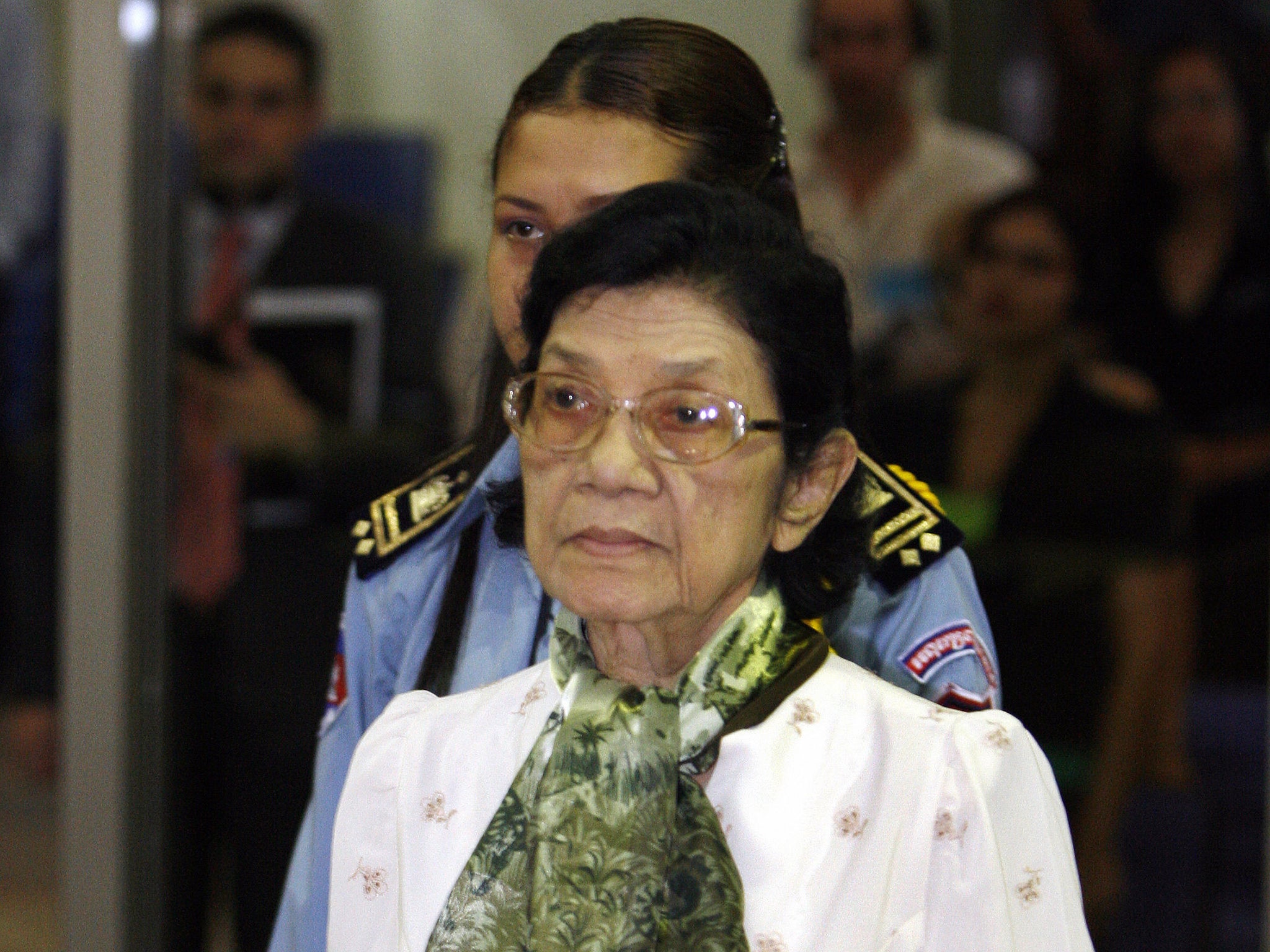Ieng Thirith dead: Former 'first lady' of Cambodia's Khmer Rouge regime dies aged 83
The genocidal regime oversaw the death of nearly two million Cambodians

Your support helps us to tell the story
From reproductive rights to climate change to Big Tech, The Independent is on the ground when the story is developing. Whether it's investigating the financials of Elon Musk's pro-Trump PAC or producing our latest documentary, 'The A Word', which shines a light on the American women fighting for reproductive rights, we know how important it is to parse out the facts from the messaging.
At such a critical moment in US history, we need reporters on the ground. Your donation allows us to keep sending journalists to speak to both sides of the story.
The Independent is trusted by Americans across the entire political spectrum. And unlike many other quality news outlets, we choose not to lock Americans out of our reporting and analysis with paywalls. We believe quality journalism should be available to everyone, paid for by those who can afford it.
Your support makes all the difference.Ieng Thirith, the former ‘first lady’ of Cambodia’s Khmer Rouge regime, has died aged 83 on Saturday without victims ever seeing her face trial on charges of genocide and crimes against humanity. Thirith was the highest-ranking woman in the genocidal regime that oversaw the death of nearly two million Cambodians in the late 1970s.
A senior-ranking member of Democratic Kampuchea, Thirith was also the sister-in-law of the movement's late supreme leader Pol Pot and had been ill for several months. Her son said she had been suffering from dementia, heart problems and other health issues after being hospitalised in Thailand.
A Sorbonne-educated Shakespeare scholar, she served as minister of social affairs and was married to Ieng Sary, the regime's former foreign minister, who died in 2013 at age 87.
A Maoist-inspired communist regime, the Khmer Rouge sought to launch an agrarian revolution in Cambodia. An estimated 1.7 million people died from overwork, starvation and murder between 1975 and 1979.
Ieng Thirith was put on trial by a United Nations-backed tribunal seeking justice for crimes committed by the radical movement, but freed in September 2012 before its conclusion after being declared mentally unfit.
Though she did not remain on trial long enough to see a verdict issued, the court's indictment notes that the minister actively participated in the regime's largest purge, among several other crimes.
The current case, which involves the remaining senior leaders of the regime has been showered in allegations of political interference, mismanagement and corruption and has been slowed down by the old age and poor health of the accused.
Join our commenting forum
Join thought-provoking conversations, follow other Independent readers and see their replies
Comments